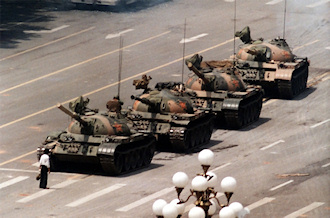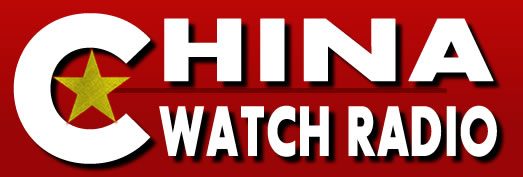Amy begins by talking about a 25 lb food ration coupon. She recalls that, as long as she remembered, having been born in 1952, there was always a food ration coupon. Amy recalls her Christian god mother, who ran a children’s hospital. The woman became her godmother after helping to care for Amy.
Her husband was a surgeon, but was starving to death in jail. His English was very good. He was accused of being a spy and tortured to elicit a confession. After he died, Amy’s godmother was told to confessed. She was the kind of person for whom dignity is more important than life. She decided to hang herself. Her son was called to denounce her dead body in front of the community. He was not able to use cremation services for a denounced person. So, the son had to take the body in type of bicycle used for carrying goods.
Amy’s mother found a collection of food coupons in her house. Amy assumes her godmother saved the food coupons and had put them in a place she knew Amy’s mother would find them.
Amy remembers her father writing Mao’s quotations in letters to make them so boring the censors would not read the whole letters. That way you could communicate important info further down the letter.
When Amy returned home, she was told the news about her godmother and given the food coupons. She returned to the labor camp in Kunming to get her fathers letters. There was an inn which would serve you if you had both money and a coupon. Amy recalls meeting a friend there and buying him a rice noodle. He was extremely hungry, because there was no food in his village. Amy assumed she had more coupons than she would need. So, she gave them to her friend.
Amy found out later that her friend had been arrested for selling coupons. His legs were chained and he was working, under very harsh conditions, in the fields. Amy blamed herself for a long time for giving him the coupons. When Amy went to a reunion many years later, she found out that her friend had been helped by a young lady who arranged for his release. He married the gild and moved to Shanghai, where they ran a rice noodle shop.
Nan introduces Zhou Fengshuo, describing his education and his role organizing the Tiananmen Square demonstrations among many other accomplishments.
Zhou Fengshuo describes Humanitarian China, describing their focus on human rights and work assisting political prisoners in China. They are based in the SF Bay Area.
Billy asks Zhou if he plans to sneak back into China again. He answers that he will continue to look for opportunities. He believes “there must be a crack in the wall and we must find it.” He remembers the last time he snuck in he thought “only god could open this door for me”.
Amy recalls the Chinese and US leaders since Tiananmen Square. She asks Zhou if he things the human rights are improving in China. He answers that it is getting worse, mentioning that the CCP was willing to use tanks on its own people. He mentions Trumps hard stance on China and is glad to see Biden following suit, though he mentions that peace with China was the wrong choice. Zhou mentions various forms of political repression in China, Hong Kong and even extending to measures against US citizens for their stance on Hong Kong.
Nan asks if there was anything the Tiananmen Square demonstrating students could have done better. Zhou recalls a failure to better communicate with sympathetic members at many levels, mentioning that “Freedom was within reach”.
Billy asks how many students were effectively removed from society as a result of the crackdown. Zhou admits we will probably never know how many people died. Zhou explains that the families of those who were killed are still living in fear of speaking out for their loved ones.
Amy asks if, in the last 32 years, has anything on the incident been published in China. Zhou says that the youth in China do not know about the event. He mentions that, some of the propaganda materials released immediately in the aftermath to justify the killing are now sought after as historical evidence of the event.
Nan compares the Tiananmen Square massacre and the current Genocide in Xinjiang, asking what western governments should do better. Zhou recalls being in a high security prison in Beijing and hearing about President Bush’s special envoy to China. It was recently revealed that Bush was not serious in punishing the CCP. Zhou suggests that that policy has created a monster.
Amy talks about how some people think the Tiananmen Square democracy movement was premature. Zhou says that is absolutely not true. He says that “the government has no accountability to its people”. 1998 troops were used in Lhasa, Tibet to institute martial law. The prevailing opinion was that troops killing citizens was the reason there had been relative peace in Tibet, suggesting that killing civilians is still considered a strategy to prevent domestic resistance.
Billy asks if Zhou still fears for his life. He describes having Chinese agents take pictures of his home just three years ago. He realized they want him to know they know were he is.
Amy asks if the CCP has infiltrated the western media in the past 32 years. Zhou suggests the media is not the worst part. He says every profession has been infiltrated, mentioning that lawyers could be fighting for human rights, but they have offices in China.
Nan asks about the ribbon cutting for the statue in Southern CA. Zhou suggests it is a very important event happening at the Liberty Sculpture Park, which also hosts the June 4th Tiananmen Square massacre statue. The new statue will be a face of Xi and a “monsterly skeleton” titled the “CCP Virus”. (Some photos and info on Liberty Sculpture Park Here: https://www.roadsideamerica.com/story/63111)
Billy recalls how much news coverage there was of the Tiananmen Square demonstrations in the west.
The team discuss the fact that young people in China have never heard of the event. Nan describes how there many Chinese people who hear about the event for the first time when they come to the US.
Nan recalls that his younger brother almost got arrested. He would have have given a pro-democracy speech, but the power failed on the speaker system.
Nan recalls demonstrations in sympathy at the time in the Bay Area.
Frank says that we have not learned anything at all in the last 32 years. Suggesting that China is still not being held accountable.
Nan describes how all University’s were stopped and all the students were sent to military training after the demonstrations.
Cornell Terry is sympathetic to the people of Hong Kong and the people of China, considering the CCP a horrible threat to all the world. He laments the failure to resist political oppression. He says Bill Clinton was bribed to allow China into the WTO.
Nan believes, if we had helped the democracy movement succeed, we would have avoided the Coronavirus.
Dan does local deliveries and notices how many of the deliveries are Chinese products. He has been noticing that many of the BLM signs he is used to seeing have recently started coming down.
Ron asks about using debt owed to China as a diplomatic tool. Billy asks specifically, what China could do if the US refused to pay our debt to China.
Judith recalls watching the Tiananmen Square demonstrations on TV. She recalls the statue the students erected. Nan mentions that statue has been rebuilt in the US.
Nan describes the “Lay Flat” movement happening in China right now, explaining that it is a form of civil disobedience in resistance to economic inequality and lack of opportunity.
Nan describes how the one child policy means a young couple will have four parents and eight grandparents to support.


